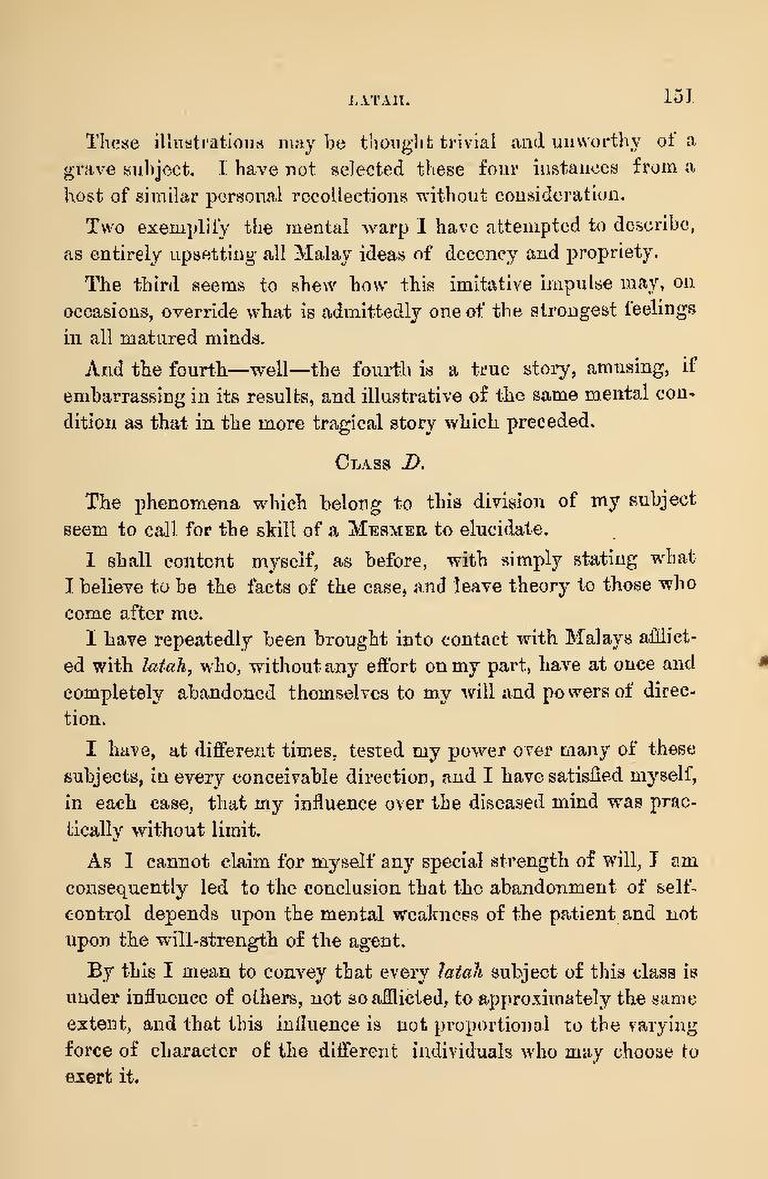These illustrations may be thought trivial and unworthy of a grave subject. I have not selected these four instances from a host of similar personal recollections without consideration.
Two exemplify the mental warp I have attempted to describe, as entirely upsetting all Malay ideas of decency and propriety.
The third seems to shew how this imitative impulse may, on occasions, override what is admittedly one of the strongest feelings in all matured minds.
And the fourth—well—the fourth is a true story, amusing, if embarrassing in its results, and illustrative of the same mental condition as that in the more tragical story which preceded.
CLASS D.
The phenomena which belong to this division of my subject seem to call for the skill of a MESMER to elucidate.
I shall content myself, as before, with simply stating what I believe to be the facts of the case, and leave theory to those who come after me.
I have repeatedly been brought into contact with Malays afflicted with latah, who, without any effort on my part, have at once and completely abandoned themselves to my will and powers of direction.
I have, at different times, tested my power over many of these subjects, in every conceivable direction, and I have satisfied myself, in each case, that my influence over the diseased mind was practically without limit.
As I cannot claim for myself any special strength of will, I am consequently led to the conclusion that the abandonment of self-control depends upon the mental weakness of the patient and not upon the will-strength of the agent.
By this I mean to convey that every latah subject of this class is under influence of others, not so afflicted, to approximately the same extent, and that this influence is not proportional to the varying force of character of the different individuals who may choose to exert it.
